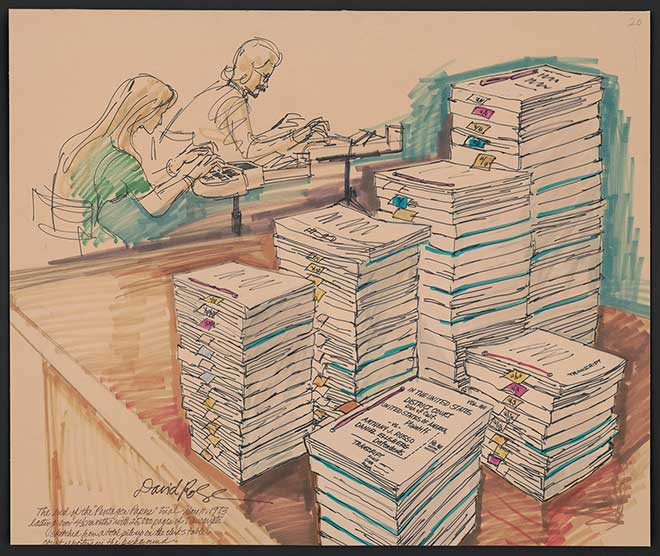The Leak
["''Pentagon Papers' Trial," May 11, 1973, David Rose]
["''Pentagon Papers' Trial," May 11, 1973, David Rose]

Daniel Ellsberg was an ex-Vietnam war veteran and military analyst who worked on the Pentagon Papers (Vietnam Study Task Force). Ellsberg believed American involvement in Vietnam was futile and opposed escalating it due to his years in service.
“By two years in Vietnam, I was reporting very strongly that there was no prospect of progress of any kind so the war should not be continued.”
- Daniel Ellsberg, "Daniel Ellsberg on 50 Years Since Leaking the Pentagon Papers," June 13, 2021
Daniel Ellsberg Interview, 1971, PBS
Aware of the secrets, Ellsberg planned to publicize the Papers to hold the government accountable and exacerbate resistance to the War. He started by photocopying the Pentagon Papers and presenting them to several members of Congress; however, he did not garner any support.
“I would even say that I was confident after our conversation that McGovern wouldn't change his mind. Yet when he called me in Cambridge just a week later to say, 'I'm sorry, I can't do it.'”
- Daniel Ellsberg, Secrets: A Memoir of Vietnam and the Pentagon Papers, 2003

Neil Sheehan in South Vietnam, 1963, Times Magazine
After exhausting many options, he turned to Neil Sheehan, a writer for the New York Times, whom Ellsberg met under military service and shared Ellsberg's view on the war. In March 1971, Ellsberg disclosed the Papers to Sheehan. Though Ellsberg never explicitly permitted Sheehan to photo-copy and publish the papers, Sheehan used the papers for a series of articles in the Times.
“Those papers are the property of the people of the United States. They paid for them with their national treasure and the blood of their sons, and they have a right to it.”
- Neil Sheehan, “Now It Can Be Told: How Neil Sheehan Got the Pentagon Papers,” 1971